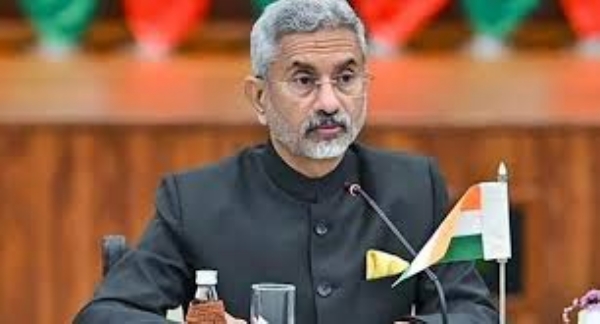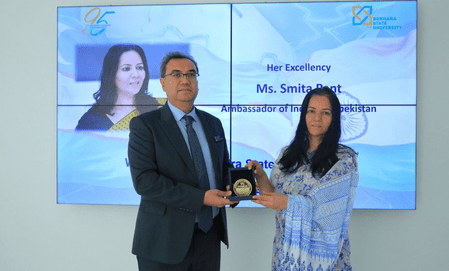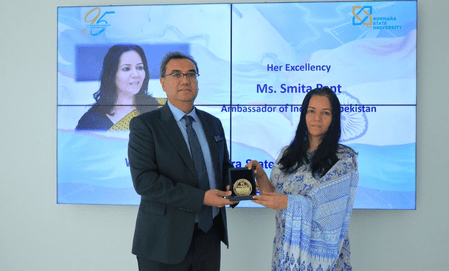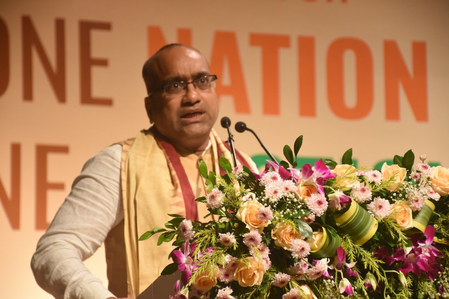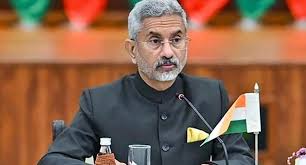
New Delhi, 15 May (H.S.): External Affairs Minister S. Jaishankar addressed reporters regarding Operation Sindoor on Thursday, emphasizing that Prime Minister Narendra Modi has clearly stated that any dialogue with Pakistan will strictly focus on terrorism. He noted that the Indus Waters Treaty currently remains inactive until cross-border terrorism from Pakistan is credibly and irrevocably stopped. Jaishankar’s remarks followed a recent ceasefire agreement between India and Pakistan after the tragic Pahalgam attack on April 22, which resulted in the deaths of 26 civilians.
Jaishankar highlighted that the Prime Minister has made it explicit that discussions with Pakistan will only revolve around terror-related issues, stating, Pakistan has a list of terrorists that needs to be handed over, and they have to shut down the terrorists’ infrastructure. He reiterated India’s readiness to engage with Pakistan solely on terrorism but asserted that India’s dealings will be strictly bilateral, maintaining a long-standing national consensus with absolutely no change.
Concerning the Kashmir situation, he mentioned that the only remaining topic for discussion is the vacating of illegally occupied Indian territory in Pakistan-occupied Kashmir, reinforcing India’s openness to discussing this matter with Pakistan.
Regarding Operation Sindoor, Jaishankar clarified that the operations were aimed explicitly at terrorist infrastructure rather than the Pakistani military. He conveyed a strong message to Pakistan stating, “We are striking at terrorist infrastructure, we are not striking at the military, explaining that the Pakistani military had the option to remain uninvolved but failed to heed this advice.
Through his statements, Jaishankar underscored India’s unwavering position on terrorism and bilateral engagement with Pakistan, reaffirming the commitment to combat terrorism while keeping discussions focused strictly on this issue.
The Indian Army’s satellite imagery reportedly illustrates the significant damage inflicted on Pakistan’s terror camps. India’s External Affairs Minister, S. Jaishankar, highlighted this by stating that the images clearly depict the extent of damage India caused compared to the minimal damage inflicted in return. He noted a notable change in Pakistan’s demeanor following the events of May 10, indicating that those who refused to negotiate on May 7 were suddenly open to dialogue by May 10, suggesting that Pakistan was the party seeking a cessation of hostilities.
Jaishankar refrained from directly referencing U.S. President Donald Trump’s ceasefire announcement on social media but mentioned ongoing trade discussions between India and the United States. He emphasized that until a trade agreement is finalized, it is premature for India to assess the outcomes of these negotiations. He explained that trade negotiations between the two nations have been complicated and are actively progressing, asserting that any potential trade deal must be mutually beneficial and satisfactory for both countries.
On May 7, India executed precision strikes targeting terror infrastructure, which prompted a series of retaliatory attempts from Pakistan on May 8, 9, and 10 aimed at Indian military bases. India’s response to these provocations was characterized as strong and decisive. Jaishankar’s remarks demonstrate India’s commitment to maintaining national security and engaging in diplomatic dialogues, while also navigating complex trade negotiations with the United States amid these regional tensions. The situation illustrates the delicate balance between military actions and diplomatic engagements that countries may need to navigate in times of conflict.
—————
Hindusthan Samachar / Indrani Sarkar

